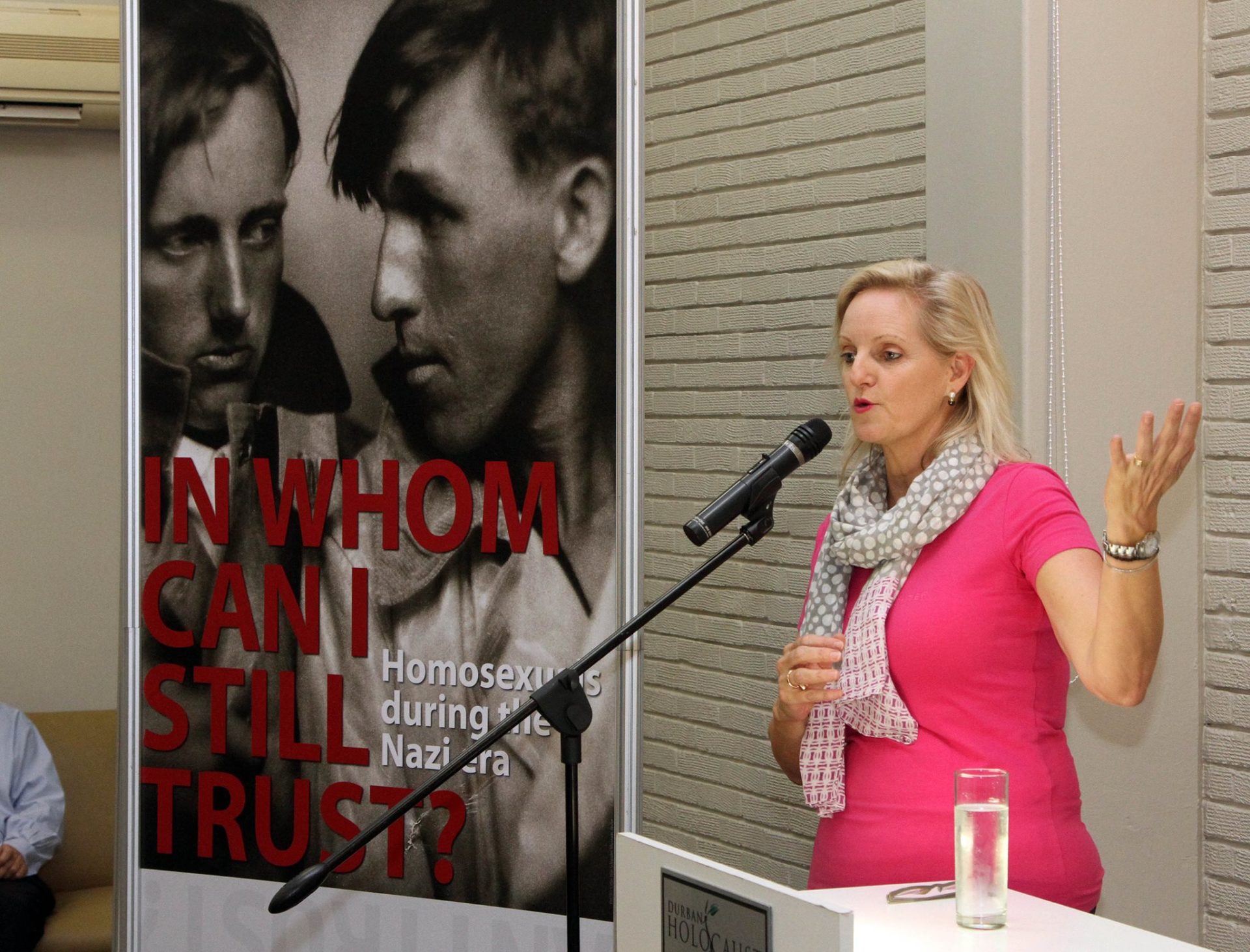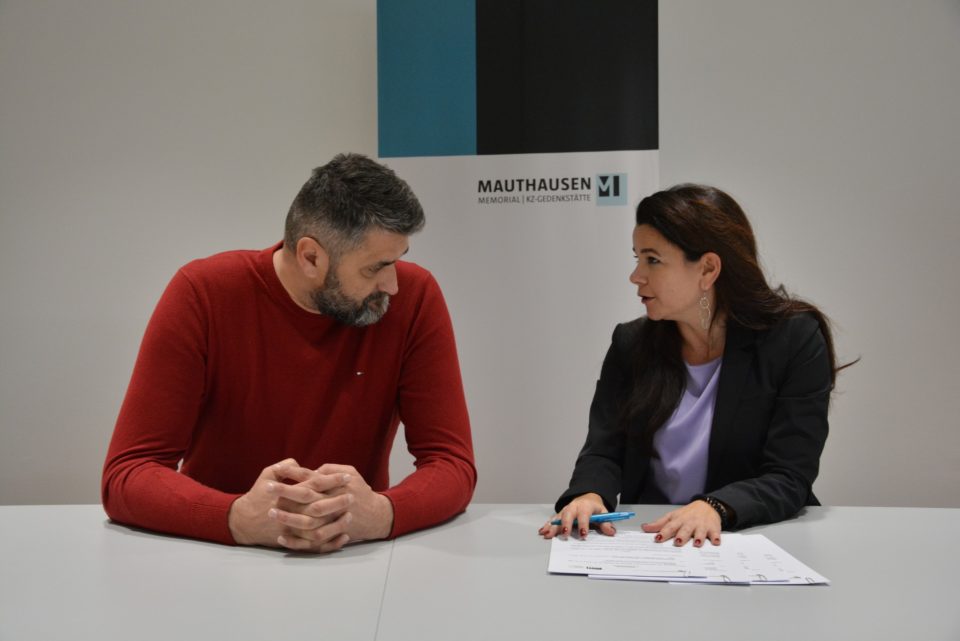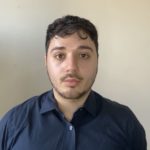
Every year, the world is united in grief for the victims of genocide. In January, we remember the six million Jews murdered in the Holocaust. In July, we commemorate the more than 8,000 Bosniak men and boys who were killed in Srebrenica. In recent years, memorialisations of the Holocaust and Srebrenica have increasingly involved closer cooperation between educators in both communities.
In 2022, the Srebrenica Memorial Center (SMC) signed a memorandum of understanding with the Mauthausen Memorial in Austria. The following year, a delegation of the World Jewish Congress (WJC) travelled to the SMC in Potočari to mourn the victims of the Srebrenica Genocide. In January 2024, Holocaust and Srebrenica survivors came together to launch the first ever joint initiative to advocate for peace and prevent future genocides.
Against this backdrop of intercommunal solidarity, the Director of the Durban Holocaust and Genocide Centre (DHGC), Mary Kluk, made the 12,000-kilometre journey from South Africa to Potočari in order to take part in the annual Srebrenica commemoration of July 2023. The DHGC Director was struck by the stark reality of (post-)genocide Srebrenica. As her organisation engages in the struggle to educate people about the Holocaust in South Africa, Mary Kluk sat down to share her thoughts with Balkan Diskurs about the opportunities and challenges facing genocide education on Srebrenica and the Holocaust.
Founding the DHGC and educating society
Kluk founded what would become the DHGC in 2008. Today, the centre’s stated mission is to “raise awareness of the evils of genocide”; a seemingly mammoth task in a world of disinformation and increasingly elaborate relativisation. Yet the seeds of the DHGC were sown within the context of a much narrower, more immediate need. While visiting South African schools to promote an exhibition on German Jews who had fled to South Africa in the 1930s, Kluk had a pivotal conversation with school teachers in 2007. “They all explained to me that during that year the South African National curriculum for Social Science in Grade 9 had changed to include a module on Nazi Germany and the Holocaust. They went on to explain that most of them had no knowledge of this history and that is what got me thinking – I believed that there was a need to support the curriculum and the teachers to ensure this history was taught responsibly,” recalls Kluk.

The Durban Holocaust Centre was founded a short year later and in 2011 it became the Durban Holocaust and Genocide Centre. Despite its commitment to genocide education, effecting change in a post-apartheid space has come with significant challenges. “The DHGC is located in the province of KwaZulu Natal on the east coast of the country with political challenges and widespread areas of abject poverty,” says the DHGC director. “The dawn of democracy brought so much hope which has sadly been eroded over time. The scourge of corruption has manifested in a socio economic reality that finds over 70 percent of young people unemployed. The resultant racism and xenophobia is reaching crisis proportions.” While prejudice and xenophobia is exacerbated by South Africa’s difficult socio-economic situation, Kluk vows that the DHGC “seeks to address the core issue of ‘othering’”.
The DHGC’s educational initiatives include a 2020-2021 series of webinars with leading authors of Holocaust studies and literature. These webinars offered a global audience the opportunity to hear from survivors and scholars, while learning about various aspects of the Holocaust through the medium of writing. Topics covered in these webinars have included everything from the lives and motives of SS officers to the stories of child survivors after the genocide. In June 2021, Kluk hosted a webinar with author and chairman of the International Network of Children of Jewish Holocaust Survivors, Menachem Rosensaft.
Rosensaft is the child of two Holocaust survivors and was born in the Displaced Persons camp of Bergen-Belsen in 1948. During the webinar, Rosensaft read from his poem, Meditation on a Ghost Child, a reading Kluk remembers well. “Tragically, this poem reflects the deep physical and emotional trauma created in children survivors of genocide,” says the DHGC director, “The sense of loss implied in this line [He no longer remembers a smile, a hug, a kiss, only faint echoes of a lullaby] is palpable – the loss of their loved ones physically but also the loss of a previous life is implied in the use of the word “echoes’.”
The DHGC’s educational projects have continued to evolve since the webinar series, both online and in-person. In light of challenges concerning hate speech and education accessibility, the centre is preparing to launch two on-the-ground projects. “The first is a toolkit on hate speech, particularly for educators, and the other is a project where we offer a programme to schools in the peri urban setting of our city,” says Kluk. The latter project aims to expand the centre’s educational reach into school groups that may not have the means to travel to the centre. “We have established a small education team who will go out to these schools with a compact travelling exhibition and provide learners with the opportunity to engage with this history in their own environment,” explains Kluk, adding, “our pilot project has been exceptionally well received and we are now rolling it out on a large scale.”
Srebrenica and Holocaust education
In 2023, Kluk visited the Srebrenica Memorial Center (SMC) in Potočari, and took part in the annual commemoration of the Srebrenica Genocide. Amid the gravity of the occasion, Kluk says she was struck by the hostile environment in which the SMC does its work: “The work of the Srebrenica Memorial is really impressive as are their wonderful professional team. This was sharply contrasted by the local environment that often felt hostile. The local population appears divided into ‘us’ and ‘them’ which is extremely problematic.”

Given this systematic erasure of war crimes, it is perhaps unsurprising that neither the Srebrenica Genocide nor many of the other 1992-1995 atrocities are taught in the RS school curriculum. This is a problem that, Kluk believes, demands creative solutions. “In South Africa the idea of including the Holocaust in the National Curriculum was in some sense to help young people explore a historical case study as a means to slowly access our own very difficult past. Perhaps this method could be applied to the study of the Srebrenica Genocide where the initial study of the genocide against the Tutsi in Rwanda which occurred a year early could be a way to open the conversation about their own difficult past?”
Kluk’s remarks underpin a growing evolution in Srebrenica and Holocaust education, which may look towards increased collaboration as an effective frontier against genocide denial and revisionism.
Establishing a robust genocide educational framework also involves thinking about future obstacles. Kluk warns Srebrenica NGOs and civil society actors of an impending challenge that Holocaust educators are already in the midst of navigating. “The challenge of the ‘day after’ when first hand witnesses and survivors are no longer with us is something that Holocaust educators have been grappling with for some time and which is now urgent,” says Kluk. “The recording of testimonies is a huge priority and now work has begun on recording the history of the second generation survivors.”
The need for this proactive approach was something that struck Kluk during her visit to Srebrenica in 2023. “While in Srebrenica I met a remarkably young woman who is the sister and daughter of Srebrenica Genocide victims. She lives in the US and comes back to Srebrenica every July to be with her mum and at the commemorations – I wonder if her story has been shared and recorded?” Kluk adds that technology remains a crucial tool in digitalising and immortalising witness voices, but she ends her thoughts on a more long-term proposition: “I am of the view that the Srebrenica Genocide is not receiving enough global exposure and collaborations with other centres around the world could be very valuable.”
No matter what the future holds for Bosnia and South Africa, it is clear that genocide education across the world is increasingly looking towards closer intercommunal cooperation. As educators face ever more sophisticated methods of denialism and revisionism, this may be the sector’s strongest alloy for years to come.






